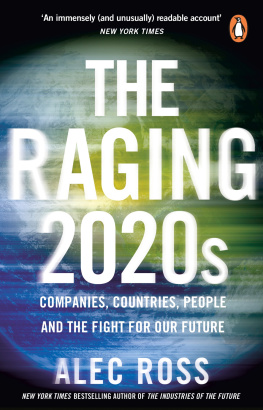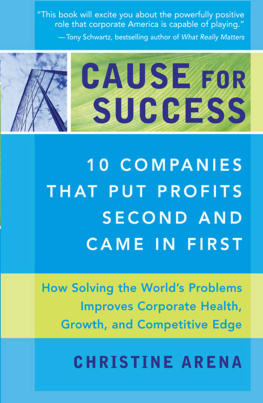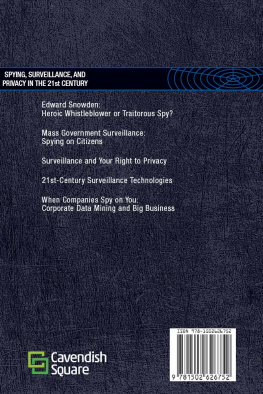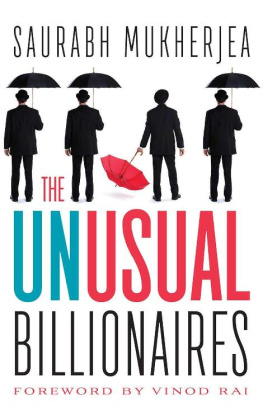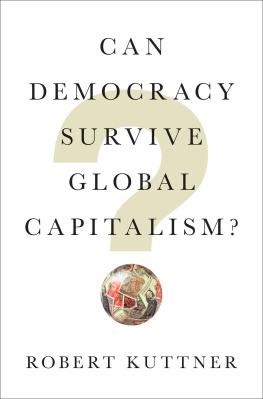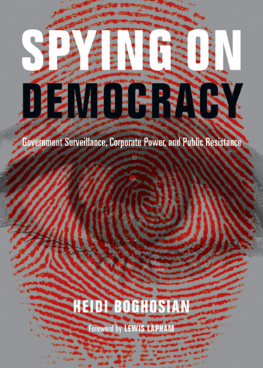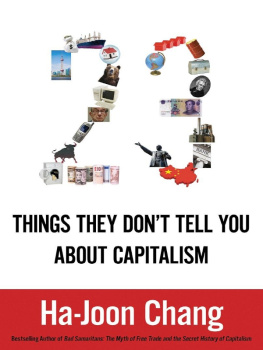TRANSWORLD
UK | USA | Canada | Ireland | Australia
New Zealand | India | South Africa
Transworld is part of the Penguin Random House group of companies whose addresses can be found at global.penguinrandomhouse.com.

First published in Great Britain in 2021 by Bantam Press
Published by arrangement with Henry Holt and Company
Penguin paperback edition published 2022
Copyright Alec Ross 2021
The moral right of the author has been asserted
While the author has used his best efforts to ensure that the information related in this work is as timely and accurate as possible, circumstances may have changed or new facts may have come to light since its writing. As such, readers are encouraged to read further on the topics discussed, and the author and publisher disclaim liability in connection with any losses or damages incurred in connection with errors and omissions in its contents.
Every effort has been made to obtain the necessary permissions with reference to copyright material, both illustrative and quoted. We apologize for any omissions in this respect and will be pleased to make the appropriate acknowledgements in any future edition.
Cover design by Linet Huaman
Cover image: World Getty Images
ISBN: 978-1-473-59692-4
This ebook is copyright material and must not be copied, reproduced, transferred, distributed, leased, licensed or publicly performed or used in any way except as specifically permitted in writing by the publishers, as allowed under the terms and conditions under which it was purchased or as strictly permitted by applicable copyright law. Any unauthorized distribution or use of this text may be a direct infringement of the authors and publishers rights and those responsible may be liable in law accordingly.
To my children Colton, Tehle, and Sawyer, whose adulthoods will be shaped by the choices we make during the raging 2020s
Preface
Twenty-five years ago, my younger sister moved to a small town in Northern Ireland after falling in love with a local she met at a pub. She was a university student, studying Art, and had travelled to the region to produce a painting of the Giants Causeway, a dramatic seaside setting of forty thousand hexagonally shaped rock columns formed by a volcanic eruption some fifty million years ago. My sisters love affair began at a time of sharp violence during the Troubles, and there was nearly a volcanic eruption from our mother in the United States when she heard about my sisters move. Sure enough, a warehouse for my now brother-in-laws fruit and veg business was burned to the ground by a petrol bomb. Headlines describing Northern Irelands violence regularly reached our home across the Atlantic Ocean. Our mother would phone her and ask, Are you all right? Are you safe? Is it too dangerous for you to be living there?
Fast-forward twenty-five years and my sister has a son who has moved from Northern Ireland to the United States for university. Much as the violence during Northern Irelands Troubles produced headlines that reached around the globe a quarter of a century earlier, today it is violence in the United States that produces headlines in March 2021 there was a mass shooting in Georgia, not far from where my nephew goes to school, that resulted in ten fatalities. Now it is my sister who worries, and the phone calls go in the opposite direction across the Atlantic, asking, Are you all right? Are you safe? Is it too dangerous for you to be living there?
Our ability to coexist peacefully with one another is the most basic element of the social contract the written and unwritten rules of society that define the rights of citizens, governments and businesses, as well as the duties they owe to each other.
You would think that after thousands of years of civilization, we would have sorted out how we can all work together so that we not only survive but thrive. The hard truth is that at the core of humanity are impulses for competition and conflict, for the hoarding of wealth, and for well-being to be determined more by where you are born than by any other factor. The where continues to matter. Some might imagine that digitization and globalization would melt borders, but the opposite is happening. And just as Northern Ireland and the United States have traded positions in terms of civil unrest, countries all over the world progress and regress. Australia, for instance, has navigated away from many of the mistakes made by other countries trying to cohere the roles of the state, business and citizens, and is now a long way from the violent dystopia of 1979s Mad Max. Its competition for success in this respect may be New Zealand.
Many more countries, though, are undergoing periods of choice and transition, deciding which model to follow for establishing an effective and durable social contract. South Africa, India and Pakistan toggle between equilibrium and imbalance. Periods of growth and stability are interrupted by the difficult reality of being democracies and economies still very much in development. Inequality, corruption, violence, and the prospect of fiscal austerity hold back South Africas development. India suffers from a sort of multiple personality disorder; it is home to many of the worlds best engineers and other knowledge workers, but more than half of its 1.3 billion citizens scrape a living working in an agricultural system that is more medieval than modern. Pakistans economic and cultural vibrancy are stifled by its pseudo-democratic governance and its having one of the worlds worst fake news environments, which distorts truth and reality.
These and other developing countries are managing impulses that pull them in two different directions: one towards openness and the kind of political and economic systems we would usually associate with the United States and the United Kingdom; and the other towards more authoritarian command and control, with access to mobile networks and social media turned on and off by the government, and the use of powerful twenty-first century surveillance tools to monitor and manipulate the public. Security and freedom appear more at odds today than they have been in many decades, and amidst disorder amidst so much rage our survival instincts kick in.
Prior to his recent appointment as Principal of Hertford College, Oxford, Tom Fletcher served as foreign policy adviser to three prime ministers and as the British ambassador to Lebanon. Hes the epitome of an establishment super-achiever. Before moving with his family to Oxford, Fletcher was living in Abu Dhabi. When I spoke to him on the phone while he was there, he joked that Emirati officials were listening in on our call. But even though Fletcher is a Western diplomat and academic, he admitted to holding the view that pervasive surveillance can provide citizens with a sense of safety: I know that my phones are tapped, I know my emails are monitored, I know that there are cameras everywhere, but I also know that I can leave my car keys in the car. I dont even know where the house keys are because I never lock the house door. My wife feels much freer here than she does in the UK. We are much less worried about crime. I never know where my eight-and twelve-year-olds are. Theyre just romping around on their bikes and so on with no concerns over all the things that we worry about in the West.
We have a liberty here that we could never imagine having when we get home. For me in particular thats really challenged that Benjamin Franklin line about anyone who gives up a bit of liberty for a bit of security deserves neither. Im actually very relaxed about giving up a bit of liberty as part of the social contract here for more security.
Next page
